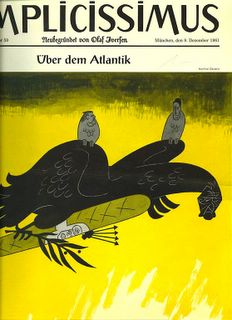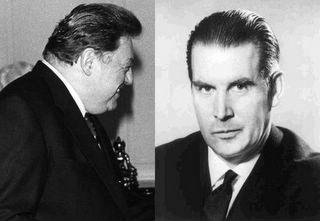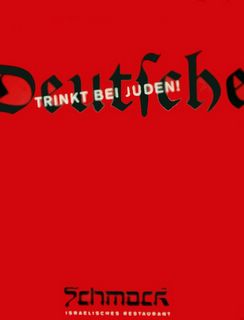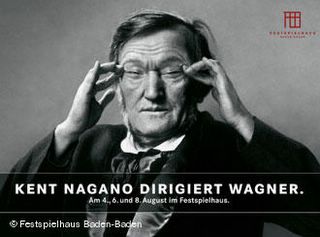Simpler Times

Recently purchased a December 9, 1961 copy of the unfortunately-now-defunct Munich based periodical Simplicissimus at the City Museum...and began the process of reconstructing an old political cartoon. The title is 'Over the Atlantic', and the caption says, "Wetten? Der Alte gibt die Zigarre glatt als die allerneueste Zeus-Nike aus!" ("What do you wanna bet, the old guy passes the cigar off as the latest Zeus-Nike!"). The reference is to a series of anti-ballistic missiles developed by Western Electric/McDonnell-Douglas in the late 50’s-early 60’s.

The smaller figures are (the famous Bavarian—so famous they named the Munich airport after him) then Minister of Defense, Franz Josef Strauss, and Foreign Minister, Gerhard Schröder (not to be confused with he of the recently deposed).

They are talking about Chancellor Konrad Adenauer, personified by a black eagle, and called 'der Alte' because he was 85 at the time (he had been mayor of Cologne from 1917-1933, was thrown in jail on suspicion of conspiring to murder the Führer [he was innocent], and became the first Chancellor of the newly formed Federal Republic of Germany in 1949). The three of them had recently returned from a trip to the United States where these toasts were proposed.

Of course that’s JFK on the cigar label, but the cigar itself...gotta be alluding to the Bay of Pigs invasion the previous April. Okay, that’s enough German humor for one day...my sides are hurting.








